Proven Strategies to Achieve High Resolution Rates in 2025
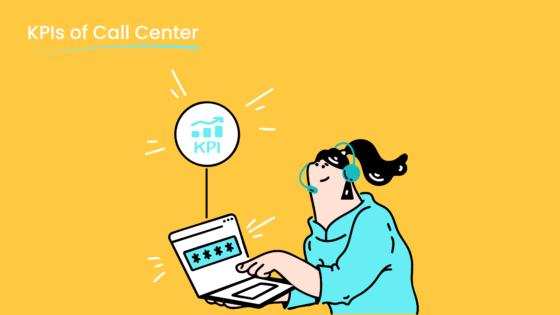
Imagine a world where every customer interaction feels personal and efficient. In 2025, achieving high resolution rates will be the backbone of successful customer service. Why? Because customers expect fast and seamless solutions. Studies show that customers are 2.4 times more likely to stay loyal when their issues are resolved quickly. Plus, 86% of consumers say they’re willing to spend more for exceptional experiences.
Modern tools, like Sobot’s unified communication platforms, help you track resolution KPIs and uncover bottlenecks before they escalate. By staying ahead of these challenges, you can deliver timely responses, improve customer satisfaction, and boost retention rates—all while driving profits.
Empowering Agents for High Resolution Rates
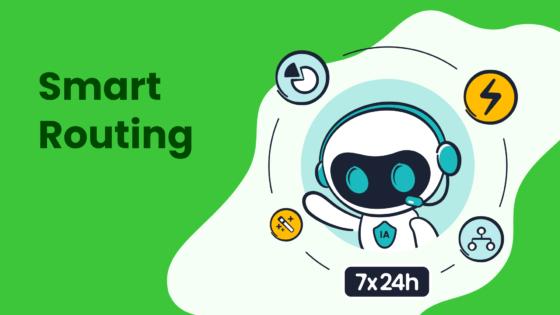
Achieving high resolution rates starts with empowering your agents. When your team feels confident and equipped, they can handle customer inquiries more effectively, leading to better outcomes for everyone involved. Let’s explore three key strategies to set your agents up for success.
Comprehensive Training for First-Call Resolution (FCR)
Agent training is the foundation of improving first-call resolution. When your team knows how to address issues on the first attempt, it saves time and enhances the customer experience. But how do you ensure your training programs are effective? Focus on practical, scenario-based learning that mirrors real-life challenges.
For example, companies like Mr. Cooper have seen over a 50% improvement in first-call resolution rates after implementing targeted coaching programs. Another study revealed that 70% of agents improved their resolution rates after completing structured training sessions. Here’s a quick breakdown:
| Improvement Percentage | Description |
|---|---|
| Over 50% | Improvement in FCR rate due to agent coaching program at Mr. Cooper |
| 70% | Percentage of agents improving their call resolution rates after training programs |
By investing in agent training, you’re not just teaching skills—you’re building confidence. And confident agents are more likely to resolve issues on the first call, boosting your resolution rate and customer satisfaction.
Real-Time Knowledge Management Systems
Imagine this: A customer calls with a complex issue, and your agent instantly pulls up a relevant troubleshooting guide. That’s the power of real-time knowledge management systems. These tools provide agents with instant access to resources, enabling faster and more accurate resolutions.
Here’s how they make a difference:
- They offer 24/7 support through self-service libraries, including FAQs and troubleshooting guides.
- They recommend targeted solutions, fostering customer loyalty by addressing specific needs.
- They reduce the mean time to know, helping agents find answers faster.
- This efficiency directly decreases the overall time to resolution, especially for first-call resolutions.
Sobot’s unified workspace integrates seamlessly with knowledge management systems, giving your agents everything they need in one place. This not only improves resolution rates but also enhances the overall customer experience.
Promoting Autonomy and Decision-Making
Empowered agents don’t just follow scripts—they think on their feet. By promoting autonomy, you allow your team to make decisions that align with your company’s values and the customer’s needs. This approach not only speeds up resolutions but also builds trust between your agents and your customers.
Encourage your team to take ownership of their interactions. Provide them with clear guidelines but give them the freedom to adapt. For instance, Sobot’s Voice/Call Center equips agents with real-time customer insights, enabling them to make informed decisions without unnecessary escalations. When agents feel trusted, they’re more likely to go the extra mile, leading to higher resolution rates and happier customers.
Tip: Regularly review your escalation protocols. Simplify them to ensure agents can resolve issues independently whenever possible.
Optimizing Processes to Improve Resolution Rate
Improving your resolution rate isn’t just about training agents—it’s also about refining the processes that guide every interaction. By optimizing workflows, you can reduce inefficiencies, speed up resolutions, and deliver a better customer service experience. Let’s dive into three impactful strategies.
Intelligent Call Routing with Sobot Voice/Call Center
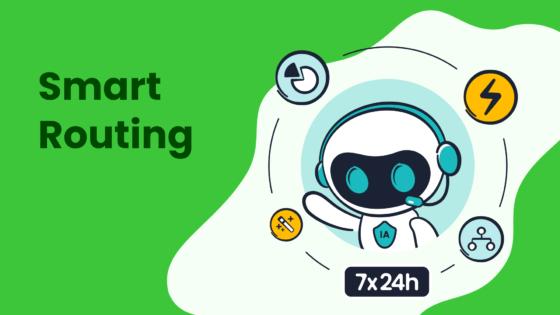
Imagine a customer calling your support line and being instantly connected to the right agent. That’s the magic of intelligent call routing. It ensures that every inquiry reaches the most qualified person, reducing the time spent transferring calls or repeating information.
Sobot’s Voice/Call Center takes this a step further with features like smart call routing and AI-powered Voicebots. These tools analyze customer intent and direct calls to the right department or agent in real time. For example, if a customer needs help with billing, the system routes them to a billing specialist instead of a general support agent. This precision not only saves time but also improves the overall customer experience.
Pro Tip: Use Sobot’s global number availability to provide seamless support across different time zones. This ensures your customers always get the help they need, no matter where they are.
Streamlining Escalation Protocols
Clear and simple escalation protocols can make a world of difference in customer service. When agents know exactly how to escalate issues, they can resolve problems faster and with less confusion. Studies show that streamlined escalation processes reduce resolution times and improve customer satisfaction.
Here’s why it works:
- Customers experience consistent service, even when multiple departments are involved.
- Agents feel empowered with clear guidelines, reducing delays caused by uncertainty.
- Faster resolutions lead to higher retention rates and happier customers.
Sobot’s unified workspace simplifies escalation by giving agents access to all the tools and data they need in one place. This eliminates the back-and-forth between systems, so your team can focus on solving problems.
Reducing Wait Times Through Workflow Automation
Nobody likes waiting, especially when they need help. Workflow automation can significantly cut down on wait times, making your customer service more efficient. Automated systems handle repetitive tasks like ticket assignments and follow-ups, freeing up agents to focus on complex issues.
Take a look at the impact of automation:
| Metric | Improvement |
|---|---|
| First Response Time | 37% reduction |
| Resolution Time | 52% reduction |
| Ticket-to-Order Ratio | 27% decrease |
| Customer Satisfaction (CSAT) | 1% increase |
| Repeat Purchases | 36% increase |
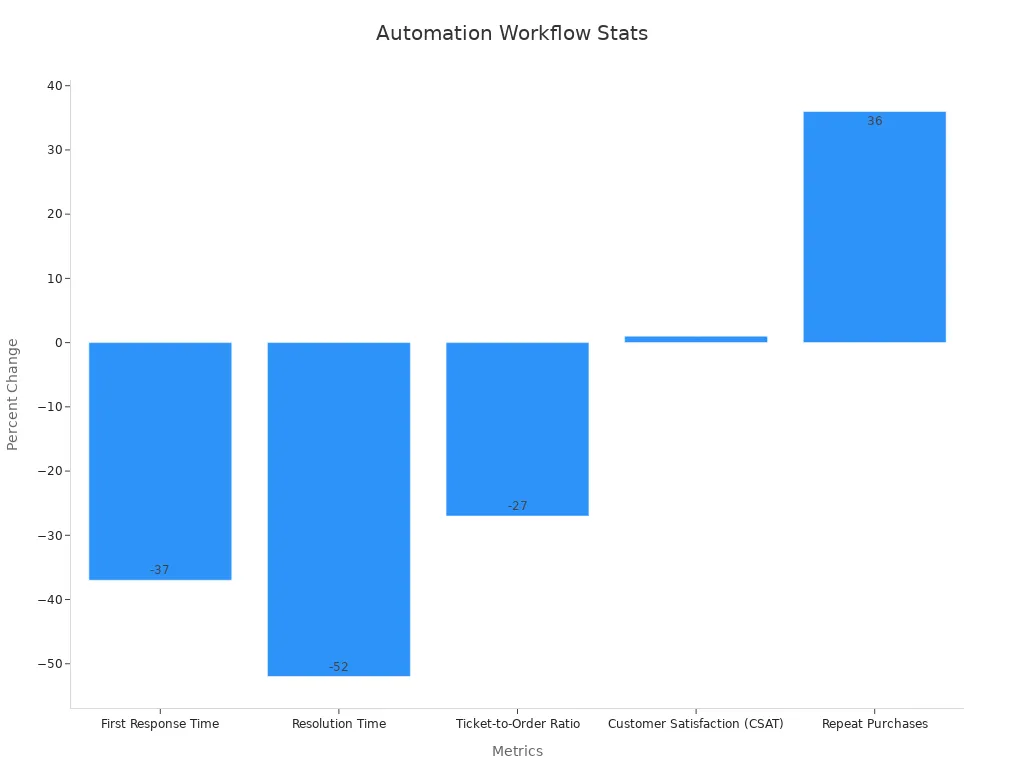
Sobot’s automation tools, like its AI-driven chatbots and ticketing system, streamline workflows to reduce delays. By automating routine tasks, you can ensure your customers get faster responses and better resolutions.
Leveraging Technology for Superior Customer Service Quality
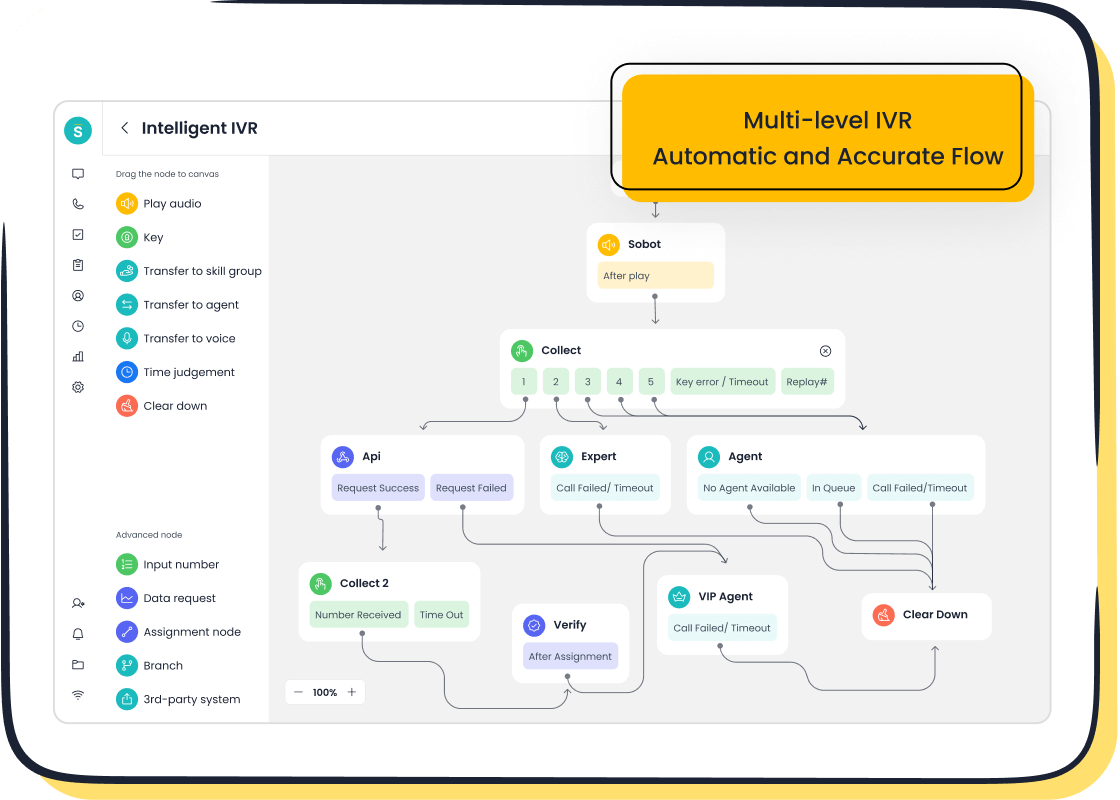
Technology is transforming how you deliver customer service. By leveraging advanced tools, you can improve resolution rates, enhance quality assurance, and create seamless experiences for your customers. Let’s explore three key innovations that can elevate your customer service quality.
AI-Powered Chatbots for Quick Resolutions
AI-powered chatbots are game-changers in customer service. They provide instant responses, handle high volumes of inquiries, and ensure consistent answers—all without requiring additional staffing. Imagine a customer reaching out at midnight with a question about your product. Instead of waiting for business hours, they get immediate help from a chatbot. This boosts satisfaction and keeps your resolution rate high.
Here’s how chatbots impact customer service:
| Feature | Chatbots Benefits | Impact on Customer Service |
|---|---|---|
| 24/7 Availability | Provides instant responses regardless of time zones or business hours | Significantly improves customer satisfaction |
| Handling High Volumes | Manages multiple inquiries simultaneously without additional staffing | Enhances efficiency, especially during peak times |
| Consistent Responses | Delivers uniform information without human error or fatigue | Increases accuracy and reliability of information |
| Data Collection | Automatically gathers insights on customer behavior and service efficiency | Informs business decisions and improves strategies |
Sobot’s AI-powered chatbots take this a step further. They’re multilingual, ChatGPT-enabled, and available 24/7, ensuring your customers always get the help they need. These bots don’t just answer questions—they collect valuable data to help you refine your strategies and improve quality assurance.
Unified Workspaces for Seamless Agent Collaboration
Collaboration is the backbone of efficient customer service. Unified workspaces bring your team together by consolidating tools, data, and communication channels into one platform. This eliminates the need to switch between apps and ensures everyone stays connected.
Research shows that unified workspaces significantly improve collaboration:
| Metric | Percentage/Count |
|---|---|
| Users who say Slack helps them stay connected | 90% |
| Average number of apps used by teams | 38 |
| Users who say Slack helps them collaborate | 87% |
| Daily messages sent | 700M |
| Weekly Slack Connect users | 14M |
| Daily workflows | 13M |
| Weekly active apps | 11.7M |
| Total survey participants (FY23) | 1,456 |
| Total survey participants (FY24) | 2,410 |
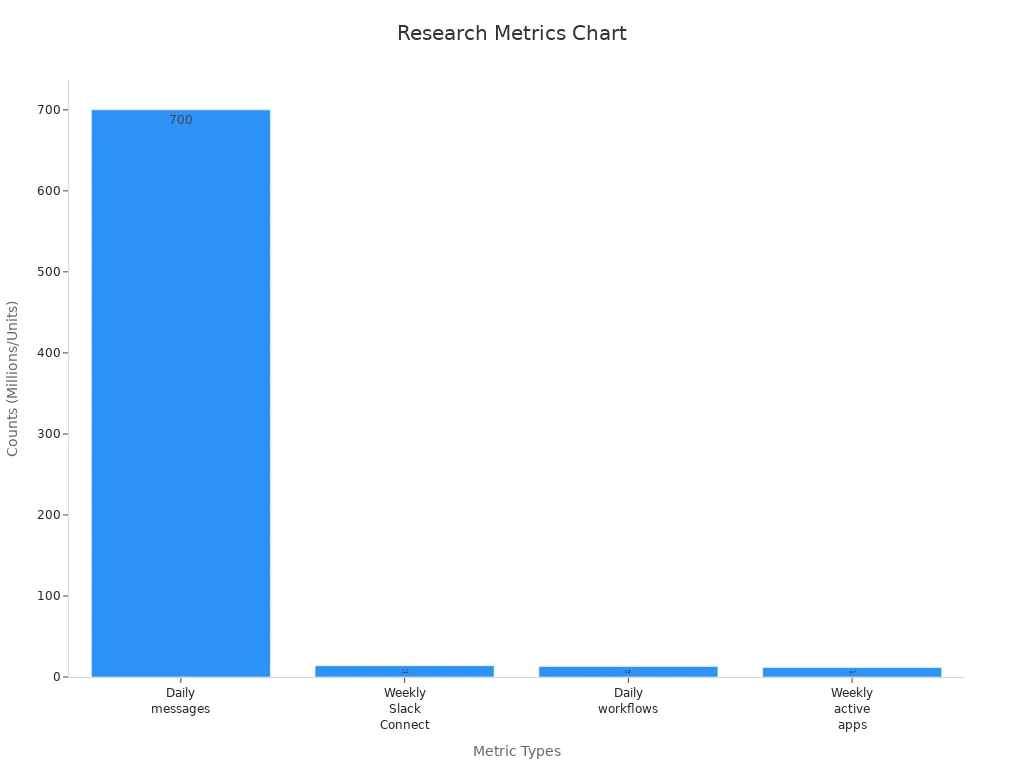
Sobot’s unified workspace integrates live chat, ticketing, and customer data into one AI-enhanced platform. This makes it easier for agents to collaborate, share insights, and resolve issues faster. When your team works seamlessly, your customers benefit from quicker resolutions and higher-quality service.
CRM Integration for Contextual Customer Insights
CRM integration is a must-have for delivering personalized service. It gives your agents instant access to customer histories, preferences, and interaction details. This context helps them resolve issues faster and offer tailored solutions that boost satisfaction.
Here’s how CRM integration improves customer service:
| Benefit | Description |
|---|---|
| Reduce Agent Stress | Screen pops provide agents with contextual information instantly, reducing the need for manual lookups. |
| Serve Customers Faster | Quick access to relevant context allows agents to resolve issues more efficiently, improving customer experience. |
| Unify Customer Data | Centralized access to customer interaction history and details enhances the ability to deliver insights. |
| Provide Personalized Service | Agents can offer tailored service based on contextual information, increasing customer satisfaction. |
| Optimize Interaction Routing | Routing rules based on CRM data ensure customers reach the right agent quickly, enhancing resolution rates. |
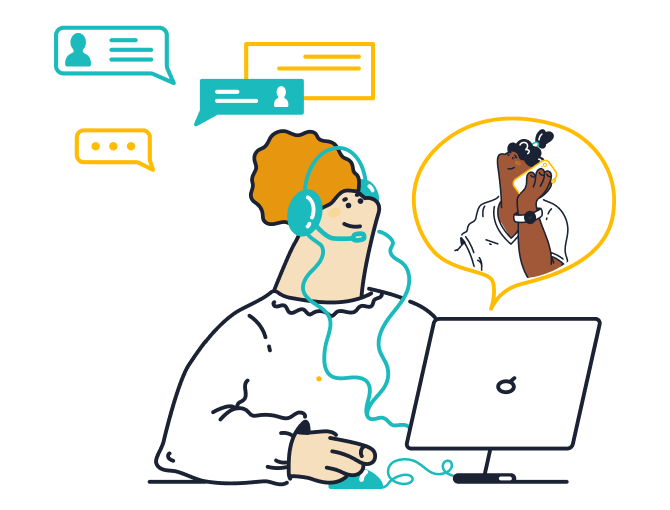
Sobot’s Voice/Call Center integrates seamlessly with CRM systems, providing agents with real-time customer insights. This reduces stress, speeds up resolutions, and ensures every interaction feels personal. By unifying customer data, you can deliver quality assurance and improve your resolution rate.
Data-Driven Strategies to Enhance Resolution Rates
Data is your secret weapon for improving your resolution rate. By tracking the right metrics, analyzing patterns, and predicting future issues, you can transform your customer service into a well-oiled machine. Let’s dive into three data-driven best practices that will help you stay ahead.
Tracking Key Metrics Like FCR and Customer Satisfaction
If you want to improve, you need to measure. Metrics like first-call resolution and customer satisfaction scores give you a clear picture of your customer service effectiveness. They show what’s working and where you need to adjust.
Here’s why these metrics matter:
- First-call resolution (FCR) measures how often you solve issues on the first attempt. It’s a direct indicator of efficiency and effectiveness.
- Customer satisfaction (CSAT) reflects how happy your customers are with your service. High scores mean you’re meeting their expectations.

Tracking these metrics isn’t just about numbers. It’s about understanding your customers. For example, FCR impacts loyalty and Net Promoter Scores. When you focus on FCR measurement, you’re not just improving efficiency—you’re building trust. Tools like Sobot’s Voice/Call Center make it easy to monitor these metrics in real time, helping you fine-tune your strategies.
Conducting Root Cause Analysis on Repeat Contacts
Ever wonder why some customers keep calling back with the same issue? That’s where root cause analysis comes in. By digging into the reasons behind repeat contacts, you can identify patterns and fix the underlying problems.
Here’s how to get started:
- Review your call logs and ticket data. Look for recurring issues.
- Analyze the root causes. Is it a product flaw? A process gap?
- Implement solutions to address these issues at their source.
For instance, if customers frequently call about billing errors, you might need to update your invoicing system. Sobot’s unified workspace simplifies this process by consolidating customer data, making it easier to spot trends and take action. Fixing these root causes not only improves your resolution rate but also enhances customer service effectiveness.
Predictive Analytics for Proactive Issue Resolution
Why wait for problems to arise when you can prevent them? Predictive analytics uses historical data and AI to forecast potential issues. This allows you to address problems before they impact your customers.
Here’s how businesses are using predictive analytics:
- Telecom companies identify at-risk customers and offer targeted retention strategies.
- AI tools analyze behavior patterns to predict and resolve issues proactively.
- Businesses use machine learning to anticipate customer needs, boosting loyalty.
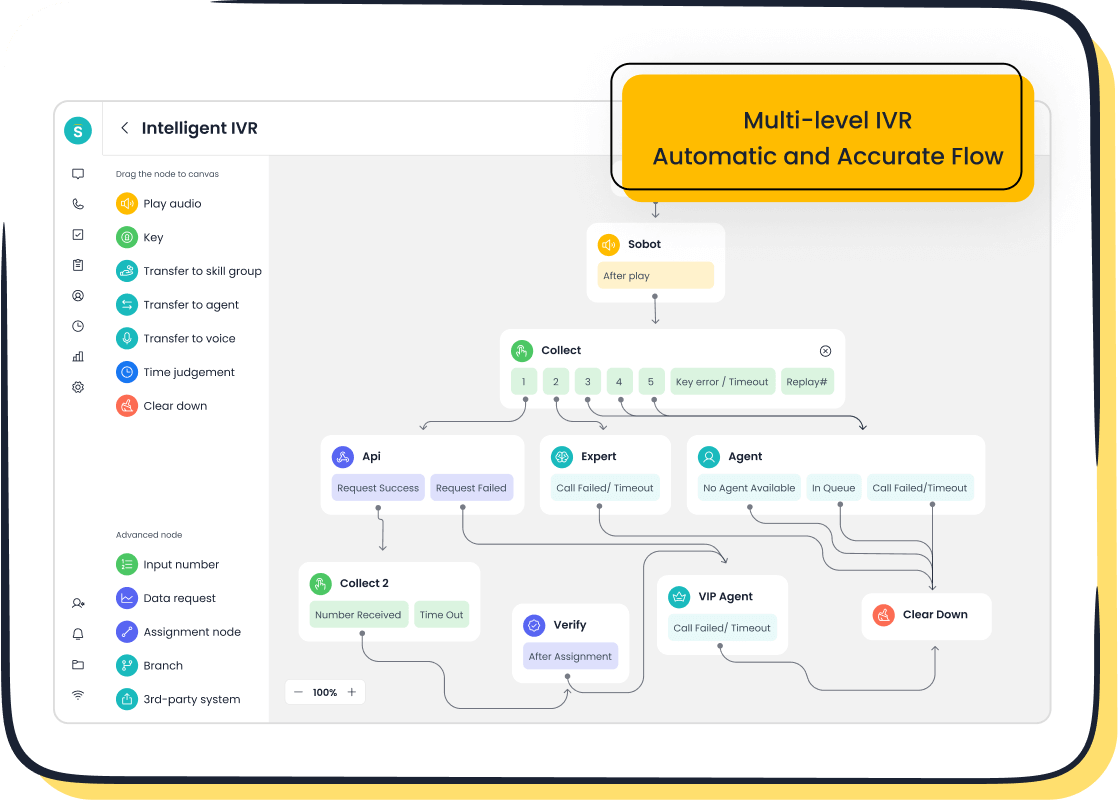
Sobot’s AI-powered solutions, like its Voice/Call Center, leverage predictive analytics to foresee customer concerns. By acting early, you can reduce churn, improve efficiency, and show your customers you care. Proactive service isn’t just a nice-to-have—it’s a game-changer for customer satisfaction.
Personalizing Customer Interactions for Better Quality
Personalizing customer interactions isn’t just a trend—it’s the key to delivering exceptional experiences. When you tailor your approach to meet individual needs, you create a connection that drives satisfaction, loyalty, and resolution success. Let’s explore how you can achieve this through omnichannel solutions, customer data, and proactive engagement.
Omnichannel Solutions for Seamless Experiences
Customers expect seamless experiences across every touchpoint. Whether they’re chatting online, calling your support team, or browsing in-store, they want consistency. Omnichannel solutions make this possible by unifying communication channels into one cohesive system.

For example, nearly 79% of customers expect a unified experience across departments, yet 55% feel like they’re communicating with multiple groups instead of one company. Sobot’s Omnichannel Solution bridges this gap by integrating voice, email, social media, and live chat into a single platform. This ensures your customers receive consistent service, no matter how they reach out.
The benefits don’t stop there. Omnichannel campaigns have a 287% higher purchase rate compared to single-channel campaigns. Brands like Nike have seen a +110% revenue boost from automation in their first year using omnichannel strategies. By adopting these solutions, you can streamline customer interactions and deliver quality assurance across all channels.
Tailoring Responses Using Customer Data
Customer data is a goldmine for personalization. When you use it effectively, you can tailor responses to meet individual needs, speeding up resolutions and enhancing satisfaction. Accurate data allows for faster ticket routing, pre-emptive problem-solving, and consistent service across channels.
Imagine a customer reaching out about a recurring issue. With historical data at your fingertips, you can identify the root cause and offer a proactive solution. A Forrester report shows that 73% of customers value their time, and quick responses significantly improve their experience. Sobot’s Voice/Call Center integrates seamlessly with CRM systems, empowering agents with real-time insights to deliver personalized service. This reduces frustration, builds trust, and ensures every interaction feels meaningful.
Building Long-Term Relationships Through Proactive Engagement
Proactive engagement turns one-time interactions into lasting relationships. When you anticipate customer needs and reach out before issues arise, you show that you care. Predictive analytics plays a big role here, helping you identify trends and address concerns early.
For instance, telecom companies use predictive tools to spot at-risk customers and offer retention strategies. Sobot’s AI-powered solutions enable similar proactive engagement, allowing you to resolve issues before they escalate. This approach not only improves resolution rates but also strengthens customer loyalty. By staying ahead of problems, you create a positive experience that keeps customers coming back.
Tip: Use Sobot’s unified workspace to monitor customer interactions and identify opportunities for proactive outreach. It’s a simple way to build trust and enhance customer quality assurance.
High resolution rates are the cornerstone of customer satisfaction and loyalty. When you resolve issues quickly, customers feel valued and are more likely to stick around. By empowering agents, optimizing workflows, leveraging technology, and personalizing interactions, you can transform your customer service into a powerhouse of efficiency.
Sobot’s Voice/Call Center is designed to boost agent performance and streamline resolutions. Its intelligent call routing and unified workspace ensure your team has the tools they need to succeed. Adopting these strategies and solutions will help you stay competitive in 2025 and beyond.
Takeaway: High resolution rates don’t just improve customer service—they drive growth. Start implementing these strategies today to see the difference.
FAQ
What is the best way to measure resolution rates in customer service?
Tracking metrics like First-Call Resolution (FCR) and Customer Satisfaction (CSAT) is key. Tools like Sobot’s Voice/Call Center provide real-time analytics, helping you monitor these metrics effortlessly. For example, businesses using FCR tracking have seen up to a 30% improvement in efficiency.
How can Sobot’s solutions improve my resolution rates?
Sobot’s tools, like its AI-powered Voice/Call Center and Omnichannel Solution, streamline workflows and reduce inefficiencies. Features like intelligent call routing and unified workspaces ensure faster resolutions. Samsung, for instance, achieved a 97% customer satisfaction rate using Sobot’s solutions.
Why is personalization important for resolution rates?
Personalization builds trust and speeds up resolutions. By using customer data, you can tailor responses to individual needs. Sobot’s CRM integration provides agents with real-time insights, ensuring every interaction feels meaningful and efficient.
How does automation help reduce wait times?
Automation handles repetitive tasks like ticket assignments, freeing agents to focus on complex issues. Sobot’s workflow automation tools have reduced resolution times by 52% for many businesses, improving both efficiency and customer satisfaction.
Can predictive analytics really prevent customer issues?
Yes! Predictive analytics identifies potential problems before they arise. Sobot’s AI-powered solutions use historical data to forecast issues, allowing you to address them proactively. This approach reduces churn and enhances customer loyalty.
See Also
Discovering Leading Cloud Contact Centers for 2025
Evaluating Best Contact Center Solutions for 2024
Enhancing Call Center Efficiency Through Effective Monitoring
Ten Essential Steps for Omnichannel Contact Center Implementation
